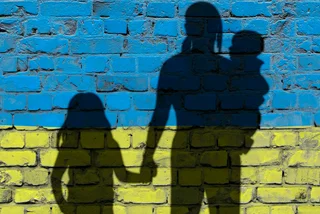The Labour Ministry of Czechia said the situation regarding aid and accommodation for Ukrainian refugees remains stable despite recent changes in support introduced in July. However, refugee-aid organizations have criticized the reduction and restructuring of support, expressing concern about potential housing loss and anticipating a worsened situation in August.
Paying for housing
The changes in support are a result of the fifth amendment to the “lex Ukraine” law, which came into force in July. According to the revised law, the state will cover emergency accommodation expenses for five months for refugees who are capable of working.
Beyond this period, refugees are required to pay for their own accommodation or seek alternative housing options. Notably, vulnerable groups such as children, the elderly, and disabled individuals will continue to receive free accommodation. The solidarity allowance for those who have accommodated newcomers in their homes or spare flats has been discontinued since July.
As per the new guidelines, only refugee households with an income below the minimum subsistence level and housing costs, set by the government at CZK 3,000 per month per person in a registered flat and CZK 2,400 crowns elsewhere, will be eligible for the humanitarian benefit.
Before the changes were implemented, around 70,000 people were in emergency accommodation, including 30,000 individuals who were not part of vulnerable groups. Additionally, 31,500 people living in 12,000 flats received the solidarity allowance.
Poor wages complicate issues
Aid organizations have raised concerns about the allocation of support. They highlight that refugees in the Czech Republic often work for low wages, making housing unaffordable even with potential benefits. Experts from the non-profit sector warn that the current aid conditions might incentivize people to work illegally, raising the risk of exploitation.
Guest Change and Success Manager - brand new team!

Trainee Recruitment Consultant - French Team!

Full-Time English Elementary Teacher

Another point of contention is the list of vulnerable individuals, which aid organizations find insufficient, as it does not include refugees with long-term or serious illnesses, such as cancer.
Balancing the needs of refugees with the resources available and ensuring their integration into Czech society remains a complex challenge that requires continuous evaluation and that may pose considerable issues in the coming months.












 Reading time: 2 minutes
Reading time: 2 minutes 




 Polish
Polish
























